
Where to Use Your Spiritual Gifts: Hands-On Help for Finding Your Ministry Niche
Adapted from an original article by Jane A. G. Kise, first published in the Discipleship Journal. Used with permission from The Navigators.
—
I took a deep breath and looked out at the room.
Eighty people were in front of me, including most of the church’s elders, a minister whose preaching silenced the audience so that you could hear a pin drop, and a colleague who taught seminars around the world.
Who am I to teach this crowd? I wondered. I should have said no!
But now I had no choice. Gripping the podium, I tried to remember the basics of public speaking: Look up. Speak more slowly than you want to. Smile occasionally.

After my talk, the audience broke into discussion groups. The minister approached me and observed, “You struck a chord. Look at how earnestly people are talking. You need to do this more often.”
That was years ago, and I’ve had many opportunities to develop my spiritual gift of teaching since then. Now, I look forward to chances to teach! Recently, while preparing for a church staff retreat, I thought of a visual way to present a topic. When I finished developing it, I glanced at my watch and found that more than an hour had passed. I had been so engrossed that it had seemed like minutes. During the actual retreat, the staff’s “aha” reactions, laughter, and post-message discussion assured me that I’d done what God wanted me to do.
That’s how using your spiritual gifts should feel: When God empowers you to serve others through your spiritual gifts and you’ve found the places where God wants you to use them, you’re more alive and fulfilled than during any other pursuit. You might even have fun!
—
Looking for resources to help you discover and use your spiritual gifts? See the selection at Tyndale House Publishers.
—

A Path to Joy
Consider Fred, a retired Fortune 500 executive. Out of a sense of duty, Fred agreed to consult with a university in Africa; he believed he needed to use his spiritual gift of leadership for God’s purposes during retirement. Six years later he’s still at it—but no longer out of duty. He says, “Never in my life have I felt such fulfillment, doing work that I love and knowing that my knowledge is needed. I firmly believe God led me to this work and guides me day by day in doing it.”
Bear in mind that joy and fulfillment can be very different from ease of service. Challenges and frustrations are normal even when we’re serving where God wants us to be. However, when we’re truly serving as God intends, we somehow have enough energy and stamina to see it through. The Apostle Paul described the joy he gained in serving Jesus even in the most difficult of circumstances; serving through your giftedness is a path to such joy:
But I will rejoice even if I lose my life, pouring it out like a liquid offering to God, just like your faithful service is an offering to God. And I want all of you to share that joy.
—Philippians 2:17
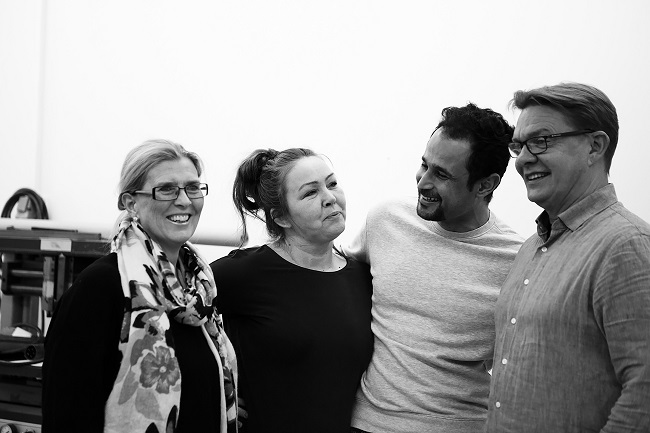
Frustrated Instead of Fulfilled?
That sounds great, you may be thinking, but I’ve never experienced that kind of gladness. If service doesn’t bring you deep joy, consider these possibilities.
You aren’t using your gifts. My friend Victoria volunteered to teach Sunday school while her daughters were young. She taught well but her efforts drained her. If I’m not having fun, are the children enjoying it? she wondered.
When our prayer group helped each other identify our spiritual gifts, Victoria’s strongest gift was administration. With that in mind, she shifted responsibilities and supported the Sunday school ministry that she loved by finding substitute teachers, keeping supply bins stocked and labeled, and setting out supplementary materials for each week’s topic. Everyone benefited from her gifting and she loved the work.
Aligning our tasks with our gifts is biblical. In the early church, the 12 apostles set aside their role in distributing food. They said,
And so, brothers, select seven men who are well respected and are full of the Spirit and wisdom. We will give them this responsibility. Then we apostles can spend our time in prayer and teaching the word.
—Acts 6:3-4
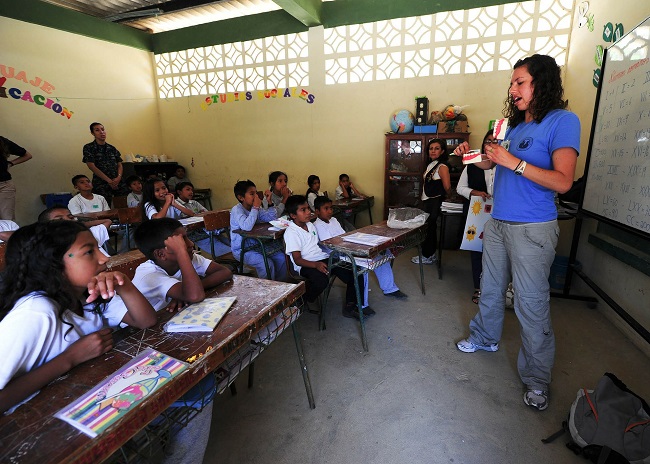
We are told that “everyone liked this idea” (verse 5 ). In part, that’s because when we practice our gifts, we leave room for other people to use their gifts. When the disciples turned their focus to prayer and teaching, it freed up those with the gifts of serving, helps and administration to really use theirs.
You’re using the right gifts in the wrong place. Terri, who handled finances for a nonprofit firm, had the gift of administration. The job seemed to be a good fit with her gifting, yet she struggled to enjoy it. Then she recognized her passion for children. She took an identical position with a children’s hospital and found the joy she’d been missing. That joy—and her new network of acquaintances—led to a new use for her spiritual gifts: helping to start a children’s hospital mission in Haiti. Besides raising funds and organizing teams and resources, Terri frequently traveled to Haiti to oversee the arrangements. Drudgery turned to fulfillment. She had discovered that determining where to use your spiritual gifts can be just as important as identifying them.
Your season of life has changed. When a mother of four preschoolers said she felt guilty that she wasn’t volunteering more, we discussed “seasons of waiting.” Sometimes your plate is too full to use your spiritual gifts in new ways—perhaps because of illness, new responsibilities, or other circumstances.

During these seasons, identify how you are serving God right where you are (such as meeting the needs of four preschoolers!). Then reflect on and seek wisdom about what might come next. Could you use this season to obtain training, study the Bible, or investigate a ministry that intrigues you and may fit into God’s next season for you?
The Bible gives many examples of people in seasons of waiting. David waited 10 years to become king after his anointing. Paul spent several years back in his hometown of Tarsus before beginning his missionary travels. In God’s economy, waiting does not go to waste.
Who are you?
We’ve identified some of the obstacles to employing your gifts with joy. Now let’s walk through a practical workshop that will help you bring together your gifting, passions, personality, roles, and skills in a way that brings you fulfillment and maximizes your ministry influence.

As we look at each area, jot your thoughts down. When you’re done, you’ll have a personalized plan. We’ll start by looking at your spiritual gifts.
What are your gifts? Paul tells us
A spiritual gift is given to each of us so we can help each other.
—1 Corinthians 12:7 (emphasis added)
That means you!
My Spiritual Gifts:
What do you think your spiritual gifts are? Write down a list of your gifts. Don’t worry about not getting the list right or complete; just take a stab at it based on your experiences and what you know about yourself. You may have one, two, or more gifts.
If you need some help, see Your Spiritual Gifts – How to Identify and Effectively Use Them and How Can I Recognize My Spiritual Gifts?
While identifying your gifts is an important step, it’s easy to get stuck here. Don’t spend so much time wondering which gifts you have that you never get around to trying out the possibilities.

So, set aside the “which gifts” search for a moment, and consider the bigger questions of where and how God wants you to serve. (The answers to these questions might even help you identify your gifts if you’re not sure what they are.)
What are your roles? God may be asking you to use your spiritual gifts right where you are, in your current roles. Young parents are called to lead, teach, encourage, help, and use wisdom in raising their children. Those of us with aging parents use gifts of mercy, encouragement, and often administration and helps. Similarly, don’t we need business people with gifts of wisdom and leadership to influence corporate ethics? Aren’t leaders of community youth activities using gifts of shepherding or administration? Think of the roles you already play and how you might use—or already are using—spiritual gifts in those roles.
You’ll note that I’ve been talking in this section about using spiritual gifts outside the church. While Paul refers to using gifts to build up the body of Christ (Ephesians 4:12), he also says the gifts are to be used to equip us to do God’s work. Not all of God’s work takes place within the walls of a church. Throughout the New Testament we see the disciples healing, teaching, showing mercy, encouraging, prophesying, and more—everywhere they go, not just to those within the body of Christ. Doing God’s work has no boundaries, and thus practicing our gifting has no boundaries.
My Roles: Write down the roles you currently fulfill: parent, coworker, neighbor, etc. You probably have a few!

What is your personality? David the psalmist wrote these words about God:
You made all the delicate, inner parts of my body and knit me together in my mother’s womb.
Thank you for making me so wonderfully complex! Your workmanship is marvelous—how well I know it.
—Psalms 139:13-14
Our inmost beings—our personalities—come from God and influence how we use our spiritual gifts. Yes, we can learn to serve in ways that force us to be more outgoing or more organized or more adaptable than our natural bent, but I’ve observed in Scripture that God tends to use people as they are. Consider Paul, that decisive, outspoken organizer of the persecution of the early church. After his conversion to Christianity, his personality remained the same—decisive, outspoken, organized—but God put Paul’s personality to work as a leader for the church rather than against it.
Your personality might help you discern whether you’re more suited to teaching a Bible study for 6 people or a seminar for 600. Or whether you’d rather use your gift of mercy answering suicide hotline calls or counseling individuals in a long-term process. While we need to be careful not to use our personalities as an excuse to ignore or abuse our spiritual gifts, God seems to be rather efficient in creating us in ways that indicate our best paths to service.

Look at the women of Acts: Lydia urged Paul’s whole team to stay at her house; her gift of hospitality and her outgoing personality gave them a needed ministry base in Philippi, a city without a synagogue (Acts 16:11-15). Tabitha is remembered for “always doing good and helping the poor” (9:36), revealing a gift of mercy paired with a behind-the-scenes personality. Different spiritual gifts, different personalities, different paths to service.
Your personality might make you more comfortable with
- Crowds or small groups
- Building relationships or accomplishing tasks
- Well-defined responsibilities or launching new endeavors
- Ongoing duties or frequent changes in who, where, and why you serve
- Being in charge or supporting others who are in charge
The body of Christ needs people of all types. Ask God for insight into how He has formed your personality. Invite Him to show you how your personality and your spiritual gifts can complement each other.
| My Personality Preferences: Using the bulleted list above—as well as other things you know about yourself—write out your personality preferences (e.g., groups of people, lots of action, hands-on tasks). |
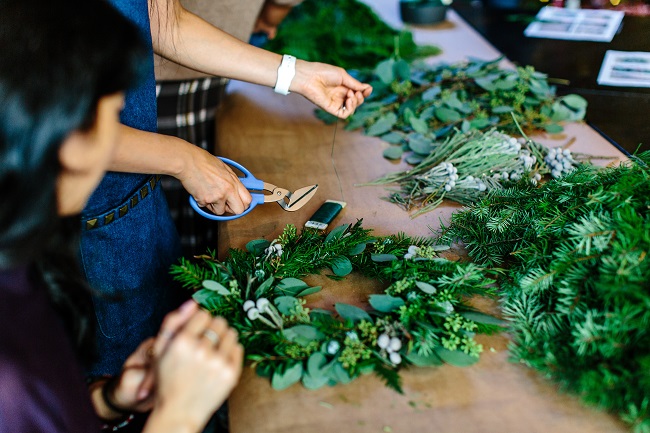
The scope of a passion doesn’t matter if it’s important in God’s eyes. Is it any more important, for example, to bring a meal to new parents than to serve meals at a food shelter or lead a food drive to stock emergency shelves? As we identify our passions, we will also learn to recognize the most effective ways—big or small, flashy or subtle—to put our gifts to use in that area of passion.
My Passions: What do you get enthusiastic about? For example,
- In each of your roles, what problems would you like to see resolved?
- When you see news stories, which issues get your attention? Injustice? Disaster relief? Teens in crisis?
Again, write down a small list of your passions (I hope you’re keeping all of this information close by!).

What are your hobbies, skills, and talents? Another way to verify your spiritual gifts is to identify ways you can use them through activities you already enjoy. Steve, a youth pastor, loves sports. He uses his spiritual gift of counseling when shooting hoops one-on-one with the teens he pastors. He also encourages by attending their sporting events. He helps by assisting with the church-sponsored softball league.
My Hobbies/Skills/Talents: Write down all that you can think of!
—
To finish up your discovery workshop, look back at the list of your spiritual gifts, and keep them in mind while you answer the following questions:
- Which gifts might you already be using in your roles?
- What do your personality preferences suggest about the type of ministry you might favor?
- What link can you see between your passions and your known or suspected spiritual gifts?
- How might your hobbies, skills, and talents be avenues to using your gifts?
Sum It Up
- What do your answers to the questions above tell you about where and how you might be best suited to use your gifts?
- Are you already in that place, or is it time to consider a change?
- If it’s time to consider change, choose one of the following “next steps:”
- Review your lists of skills, hobbies, talents, and spiritual gifts. Which are you most excited to use right now?
- Talk with a volunteer coordinator at your church or a nonprofit organization. What did you learn about where your gifts might match their needs?
- Ask yourself, If I could do anything for God, what would it be?Identify a first step along that path.
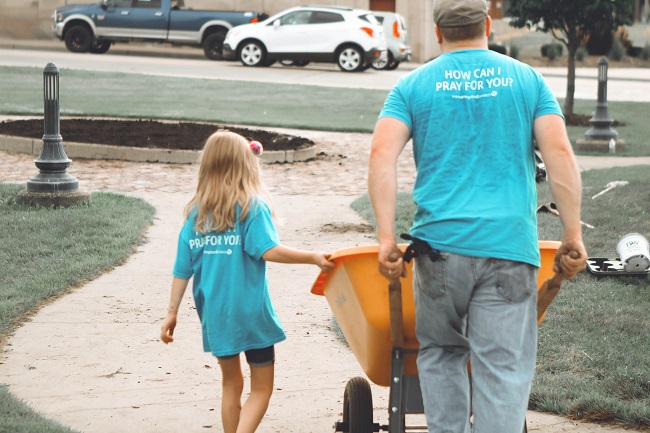
Beyond Discovery
While spiritual gifts tell us what we might do for God, they don’t fill out the bigger picture of where, why, and how we can use them. God provides other information—our personality, passions, talents, and skills—to help us put our gifts to the best possible use in the best possible setting. Still, far too many Christians sit in the pews week after week, unaware of, afraid of, or somehow disappointed in what God has created them to do.
You have the spiritual gifts God wants you to have. Take Paul’s words to heart:
But our bodies have many parts, and God has put each part just where he wants it.
—1 Corinthians 12:18
Wishing you had other gifts, or comparing your gift to someone else’s, is tantamount to saying that your Creator doesn’t know you well enough to choose exactly the right spiritual gifts for you. And remember, if you’re using your gifts but not finding joy, ask yourself if you’ve discovered the right gifts, if you’re using them in the right place, or if you’re in a season of waiting or transition.
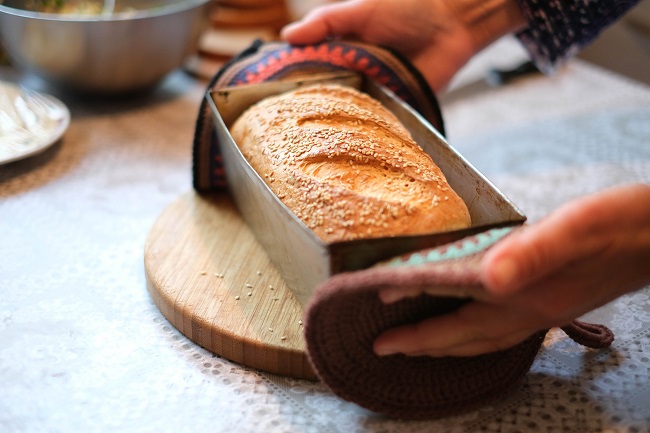
You’ll grow as you go. Spiritual gifts frequently come with a “some assembly required” label. Just as I grew in my ability to teach after that first scary experience, almost all of us need practice and mentoring to grow in our ability to use our gifts. Learn from those around you, take advantage of training when it’s offered, and read and study about how to use your gift. Bear in mind that most churches and nonprofit organizations have low “entry requirements:” That means they provide ideal environments for practice and experimentation in your gifting, without demanding perfection.
If you’ve been using your gifts for a while, stay alert to new ways to use them even more effectively. You might want to meet with others who share your spiritual gifting to learn from each other how to enrich your service. In my prayer group, for example, we frequently help each other think through whether opportunities are truly in line with how God designed us.
Whatever your gifting, you are needed. Paul wrote,
The eye can never say to the hand, “I don’t need you.” The head can’t say to the feet, “I don’t need you.” In fact, some parts of the body that seem weakest and least important are actually the most necessary. And the parts we regard as less honorable are those we clothe with the greatest care.

Every spiritual gift works together for the body of Christ.
Using your gifts is worth the risk. To some, using their gifts may sound risky. It might mean change or uncertainty; it could result in criticism or even failure.
During a course I was teaching, I mentioned that my first career was as a financial controller. A participant asked me, “What if you’d stayed in finance?” I quipped that I’d be deep in accounting reports, bored to tears. Privately, though, I thought of the books I’d never have written, the classes left untaught. My career change was a huge risk, but it brought me more in line with how God had made me and has led to greater fulfillment.
Do you believe that God created you with a purpose? Take another look at that package you’re unwrapping, the one God chose just for you. It’s a gift that will bring completeness and purpose to your life. With practice or with mentoring, you can learn to use the contents of that package ever more effectively. You will see firsthand how you and your spiritual gifts are an essential part of the body of Christ. Try them out—they’re a perfect fit!
—
Recommended Resources:
Free spiritual gifts Bible study: click here!
All the Places to Go, How Will You Know?
In All the Places to Go . . . How Will You Know?, bestselling author John Ortberg opens our eyes to the countless open doors God places before us every day, teaches us how to recognize them, and gives us the encouragement to step out in faith and embrace all of the extraordinary opportunities that await.
What is God’s Will for My Life? 
Let’s face it: making decisions is hard—especially when it comes to the big stuff like, Should I marry this person? Am I in the wrong job? What should I do with my life? We know that God has a plan for us, but how are we supposed to know what that plan is?
In What Is God’s Will for My Life?, bestselling author John Ortberg helps us understand:
- If God’s will for my life is so important, why doesn’t He just tell me what it is?
- How can I learn to recognize God’s voice?
- If I miss God’s guidance on an important decision, am I stuck with “plan B” for the rest of my life?
God does have a plan for your life! It’s time to discover what it is.


